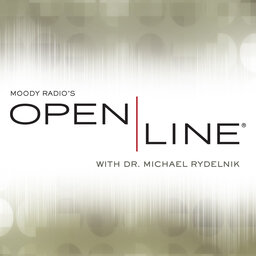Hour 1: Exploring the Word
Each Saturday on Open Line, we explore the Word of God with Bible professor and teacher Dr. Michael Rydelnik as we answer the questions you have about the Scriptures. Join us with your questions this weekend.
Learn more about resources mentioned:
Bible Reading Plans
Chosen People Ministries free gift
FEBC podcast
Moody Bible Commentary
Open Line is listener-supported. To support the program, click here.
 Open Line with Dr. Michael Rydelnik
Open Line with Dr. Michael Rydelnik



